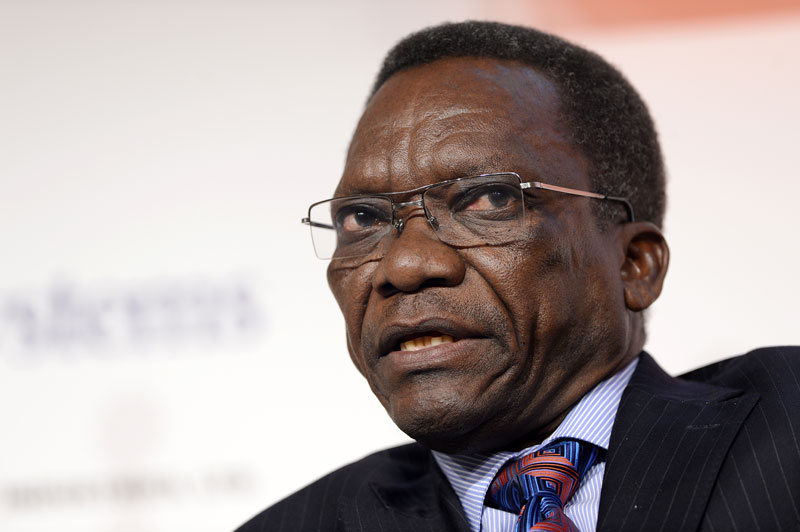Attendees told that African risks are exaggerated and advised to have the courage to take on large complex projects

It has been a year of firsts for African summits in 2014. In August U.S. President Barack Obama hosted the first African Leaders’ Summit at the White House, receiving almost 50 heads of state from the continent. Across the Atlantic, the Savoy Hotel in London has just wrapped up the inaugural Global African Investment Summit (TGAIS), which brought together leaders from Ghana, Uganda, Rwanda and Tanzania, and a large number of prestigious investors from the City. Both events were a clear signal of the U.S. and U.K.’s desire to strengthen trade and investment ties with Africa, which is home to seven of the 10 fastest growing economies in the world.
Taking place on October 20th and 21st, TGAIS (of which Worldfolio was proud to be an official media partner) gave investors a deeper insight into 30 bankable projects in Sub-Saharan Africa requiring investment and technology transfer, with a focus on projects in the power, transport infrastructure, agribusiness, natural resources and tourism sectors.
More than 500 of the City’s pension funds, sovereign wealth funds, private equity firms, asset managers, bankers, corporates, professional services firms and project developers came together for high level panels and roundtables, with discussions on the final day on private equity, capital markets, transport and ICT infrastructure and financing’s Africa’s power sector. Lady Lynn Forester de Rothschild, Chief Executive at E.L. Rothschild LLC, spoke of how Africa has become an attractive destination, even for typically conservative asset classes that have previously had very limited involvement on the continent.
While interest in Africa is no doubt growing, it may still seem like a risky and daunting place to some investors. Tas Anvaripour, CEO of Africa50, believes African risk is exaggerated. She called on investors “to have the courage to do large complex projects like Simandou in Guinea and the Tanzania-Kigali road”, noting that “Africa 50 is designed as a one stop shop for project finance, using a range of financial tools and acting as an honest broker to governments and investors to get quality deals done better and quicker.”
One of the key issues discussed at the meeting was Africa’s dire need for power. Scott Mackin, Managing Partner at Denham Capital Management LP, highlighted that the whole of Sub-Saharan Africa currently has about same generating capacity as Norway, while Bryant (ABC) Orjiako, Chairman of Seplat, said, “Africa should start thinking about itself and develop the industry and infrastructure that will require us to consume our hydrocarbons in the continent. Gas is by far the most important investment opportunity in Africa to drive sustainable growth.”
In a session on deepening Africa’s capital markets, Miguel Melo Azevedo, Managing Director & Head of Investment Banking Africa at Citigroup advocated for “big companies to list —especially in the sectors of power, telecoms, oil and gas—to bring size and depth to the market.”
Ibukun Adebayo, Co-Head Emerging Markets and Equity Primary Markets at the London Stock Exchange Group, suggested “more reform is needed for African exchanges to enable deeper participation by institutional and retail investors. Seplat raised 70% of its capital in London but most trading is done in Lagos. It’s a great example of dual listing and the symbiosis between local and international capital to create optimum value for the issuer.”
Closing the event, Paul Sinclair, TGAIS Event Director, confirmed that “due to the success of this inaugural event, combined with the excellent response from participants, the Global African Investment Summit will be returning to London in November 2015.”
While interest in Africa is no doubt growing, it may still seem like a risky and daunting place to some investors. Tas Anvaripour, CEO of Africa50, believes African risk is exaggerated. She called on investors “to have the courage to do large complex projects like Simandou in Guinea and the Tanzania-Kigali road”, noting that “Africa 50 is designed as a one stop shop for project finance, using a range of financial tools and acting as an honest broker to governments and investors to get quality deals done better and quicker.”
One of the key issues discussed at the meeting was Africa’s dire need for power. Scott Mackin, Managing Partner at Denham Capital Management LP, highlighted that the whole of Sub-Saharan Africa currently has about same generating capacity as Norway, while Bryant (ABC) Orjiako, Chairman of Seplat, said, “Africa should start thinking about itself and develop the industry and infrastructure that will require us to consume our hydrocarbons in the continent. Gas is by far the most important investment opportunity in Africa to drive sustainable growth.”
In a session on deepening Africa’s capital markets, Miguel Melo Azevedo, Managing Director & Head of Investment Banking Africa at Citigroup advocated for “big companies to list —especially in the sectors of power, telecoms, oil and gas—to bring size and depth to the market.”
Ibukun Adebayo, Co-Head Emerging Markets and Equity Primary Markets at the London Stock Exchange Group, suggested “more reform is needed for African exchanges to enable deeper participation by institutional and retail investors. Seplat raised 70% of its capital in London but most trading is done in Lagos. It’s a great example of dual listing and the symbiosis between local and international capital to create optimum value for the issuer.”
Closing the event, Paul Sinclair, TGAIS Event Director, confirmed that “due to the success of this inaugural event, combined with the excellent response from participants, the Global African Investment Summit will be returning to London in November 2015.”
'); }); $('#japan').click(function() { $('.bandera').removeClass('seleccionado'); $('#japan').addClass('seleccionado'); $('.titulo-noticia').html(''); $('.cabecera-noticia .antetitulo').html(''); $('.entradilla').html(''); $('.texto-noticia').html(''); }); $('#korea').click(function() { $('.bandera').removeClass('seleccionado'); $('#korea').addClass('seleccionado'); $('.titulo-noticia').html(''); $('.cabecera-entrevista .antetitulo').html(''); $('.entradilla').html(''); $('.texto-noticia').html(''); }); });
0 COMMENTS